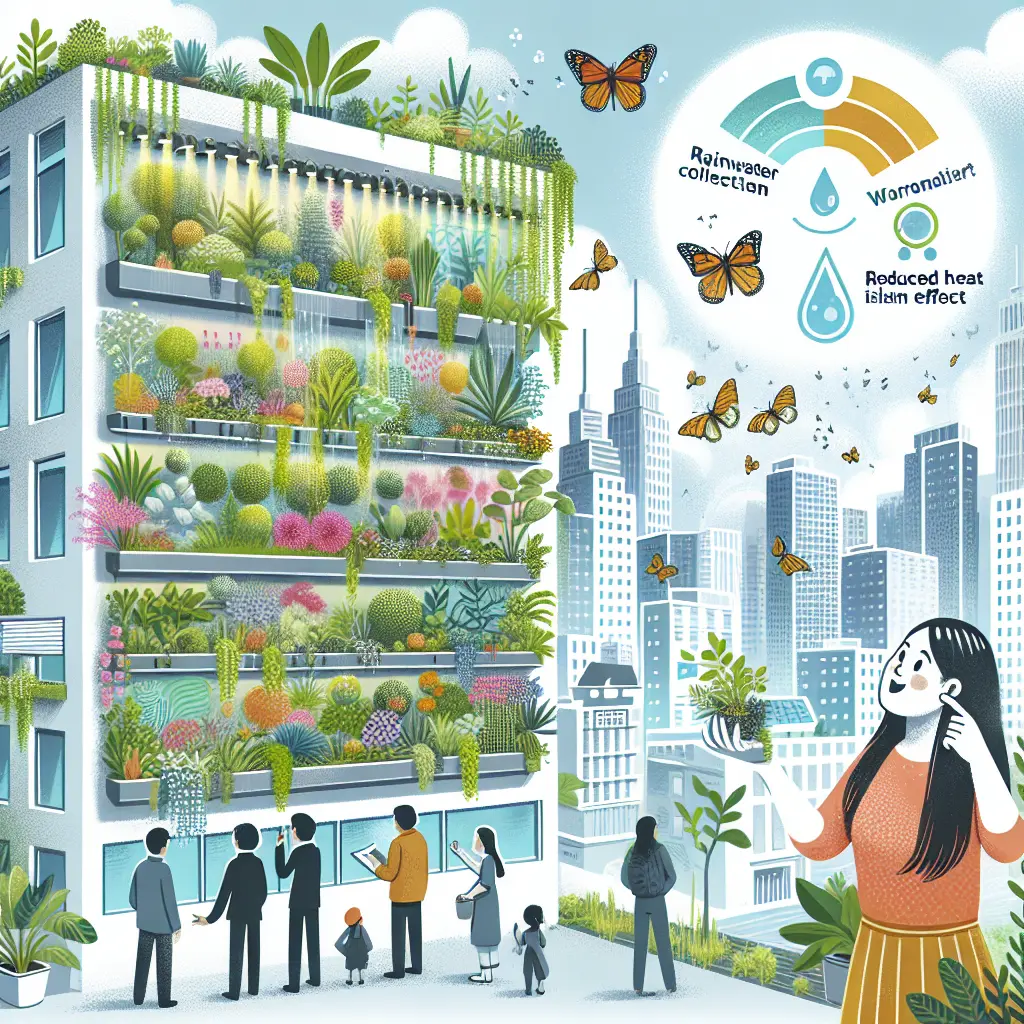
Vertical Gardening: A Sustainable Solution for Urban Environments
In an era of rapid urbanization, finding innovative ways to promote environmental sustainability is crucial. Vertical gardening emerges as a compelling solution, offering numerous benefits that make it a standout in sustainable gardening. By transforming unused vertical spaces into lush green environments, vertical gardening presents eco-friendly gardening solutions that are both practical and transformative for urban dwellers.
In the face of urbanization and the pressing need for sustainability, vertical gardening serves as a beacon of hope. This innovative approach leverages unused vertical spaces, providing benefits that extend beyond aesthetic appeal. Let's explore how vertical gardening contributes to sustainable gardening and urban sustainability solutions.
Space-Saving Gardening in Urban Environments
One of the most compelling advantages of vertical gardens is their ability to maximize space in densely populated urban areas. With land scarcity a significant challenge, vertical gardens offer an ingenious solution for city dwellers to cultivate lush green spaces without needing extensive land. For example, transforming balconies and windows into mini-gardens exemplifies how individuals can create personal green sanctuaries at home. These techniques not only enhance urban green spaces but also contribute to sustainable urban agriculture by enabling residents to grow fresh produce in limited spaces.
Reducing Carbon Footprint and Improving Air Quality
Vertical gardening plays a crucial role in reducing the carbon footprint of urban environments. By integrating plants into vertical structures, these gardens absorb carbon dioxide and release oxygen, improving air quality. This natural process directly addresses climate change mitigation by promoting cleaner air in bustling cityscapes. Embracing vertical gardening allows individuals to actively participate in creating healthier urban atmospheres.
Biodiversity Enhancement and Urban Ecosystems
Vertical gardening significantly supports biodiversity enhancement by creating new habitats for various species, enriching urban ecosystems, and promoting ecological balance. By fostering organic vertical gardens, urban areas become sanctuaries for pollinators and other beneficial insects, crucial for maintaining healthy ecosystems. Integrating green spaces into cityscapes significantly boosts biodiversity, contributing to sustainable landscape design.
Water Conservation Through Efficient Irrigation
Vertical gardens are not only visually appealing but also embody principles of green living through their water-efficient designs. Modern vertical gardens often utilize advanced irrigation systems that minimize water usage while ensuring plants receive the necessary moisture. This focus on water conservation aligns with global efforts to manage water resources sustainably, highlighting vertical gardening as a practical approach to sustainable water management.
Energy-Efficient Gardening Practices
Energy-efficient gardening is another hallmark of vertical gardening, contributing to broader goals of environmental sustainability. Utilizing natural sunlight and innovative design techniques reduces the need for artificial lighting and heating, lowering energy consumption. This aligns with sustainable gardening principles and promotes energy conservation in urban settings.
Case Studies: Successful Vertical Gardening Projects
Numerous case studies illustrate the transformative power of vertical gardening in urban environments. Singapore's "Gardens by the Bay" showcases how integrating nature into urban design can create vibrant green spaces that enhance both environmental sustainability and public well-being. Similarly, the High Line in New York City features innovative vertical gardening techniques that have revitalized the area and improved local biodiversity.
Vertical Gardening as a Tool for Urban Sustainability Solutions
Exploring vertical farming benefits reveals that this approach is more than just a trend—it's a powerful tool for fostering a healthier planet. Vertical gardens offer eco-friendly urban gardening solutions that address multiple aspects of sustainability, from reducing carbon emissions to enhancing biodiversity. They represent a fundamental shift toward sustainable landscape design that prioritizes environmental stewardship and community engagement.
Conclusion: Embracing Vertical Gardening for a Sustainable Future
Vertical gardening shines as a multifaceted solution to urban environmental challenges, offering significant benefits aligned with sustainability goals. By maximizing limited space in urban settings, vertical gardens transform ordinary balconies and windows into verdant sanctuaries, promoting urban agriculture and green living. Their ability to reduce carbon footprints and enhance air quality makes them pivotal in the fight against climate change. Moreover, vertical gardens enrich urban ecosystems by providing habitats for pollinators and other species, boosting biodiversity.
Incorporating advanced irrigation techniques, vertical gardening champions water conservation, ensuring efficient use of water resources aligned with global efforts to manage this precious commodity sustainably. Additionally, energy-efficient designs leverage natural sunlight and reduce reliance on artificial lighting, further contributing to environmental sustainability.
The success of projects like Singapore's "Gardens by the Bay" and New York City's High Line exemplifies the transformative potential of vertical gardening. These case studies demonstrate how urban landscapes can be revitalized through innovative gardening solutions that enhance both biodiversity and community well-being.
As we look towards the future, embracing vertical gardening is crucial in achieving sustainable urban development. Its myriad benefits make it a vital tool in addressing challenges posed by rapid urbanization. By adopting this approach, we can cultivate a balance between urban growth and ecological preservation, fostering healthier cities and a healthier planet.
I invite you to reflect on how vertical gardening can transform your own spaces and contribute to a sustainable lifestyle. Share your experiences and insights in the comments below. Together, let's explore the possibilities of creating greener environments that benefit both people and the planet.
Author: Audrey Walters